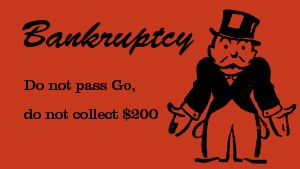By Kelly Harpster and Eva Novick
Several bills passed in the 2015 legislative session that may impact your practice or your consumer clients. Many of these bills will go into effect on January 1, 2016. We summarized the bills and grouped them into three subject matters areas below: Foreclosure/Mortgage, Unlawful Trade Practices Act and Other Consumer Protection-Related Bills. A number of these bills do not have a private right of action; however, you may still want to be aware of these changes when you are giving clients advice or screening potential clients. To view the full text of any bill, go to https://olis.leg.state.or.us/.
Foreclosure/Mortgage
SB 252 : ODVA Exempt From Foreclosure Mediation
SB 252 amends ORS 86.726 to exempt the Oregon Department of Veterans’ Affairs from the requirement to request or participate in a resolution conference with the grantor of a residential trust deed prior to commencing a foreclosure.
The bill takes effect on January 1, 2016.
SB 277 : Expanded Use of NMLS for Financial Businesses
SB 277 amends provisions of ORS 697 and ORS 717 to authorize the Department of Consumer and Business Affairs to issue rules requiring check-cashing businesses, debt management service providers, and money transmission businesses to register and renew Oregon licenses through the Nationwide Multistate Licensing System (NMLS).
Originally authorized by Congress in 2008 to provide a single, nationwide, online licensing system for mortgage loan originators, NMLS has expanded to include licensing of other financial businesses. SB 277 authorizes DCBS to conform existing licensing procedures to NMLS requirements without changing the base statutory requirements.
The bill took effect on May 20, 2015; however, the amendments apply only to registrations and renewals issued on or after the operative date of August 19, 2015.
SB 367 : Liability for Condo and HOA Assessments During the Redemption Period After Foreclosure
After a judicial foreclosure, the purchaser obtains possession of the property immediately but the judgment debtor retains legal title until the six-month redemption period ends. SB 367 amends ORS 94.712 and ORS 100.475 to clarify that the purchaser—more precisely, the certificate holder as defined in ORS 18.960—is solely liable for all homeowner’s association or condominium assessments that come due during the redemption period. If the property is redeemed, SB 367 provides that the assessments paid by the purchaser or claimant are included, with interest, in the redemption amount.
The amendments apply to properties sold at an execution sale conducted on or after the effective date of January 1, 2016.
HB 2532: Required Disclosures for Reverse Mortgages
HB 2532 amends ORS 86A.196 to require that every advertisement, solicitation or communication intended to induce a person to apply for or enter into a reverse mortgage must contain a clear and conspicuous summary of the terms of the mortgage.
Specifically, if included in the mortgage contract, the summary must disclose that: (1) a borrower must repay with interest any amount still owing at the conclusion of the term, (2) certain fees and charges may be added to the loan, (3) the balance may increase with interest over the life of the loan, (4) the borrower is directly responsible for paying taxes, insurance and maintenance costs and that failure to pay these amounts may cause the loan to come due immediately, and (5) interest on the mortgage is not tax deductible until the loan is repaid.
The requirements of HB 2532 apply to lenders and their agents and affiliates but do not apply to financial institutions as defined in ORS 706.008, licensees as defined in ORS 725.010, or mortgage bankers and mortgage brokers licensed under ORS 86A.106.
The bill took effect on May 18, 2015; however, the requirements apply only to reverse mortgage transactions that occur on or after the operative date of January 1, 2016.
Unlawful Trade Practices Act
SB 601 : Expanded Identity Theft Protection
SB 601 amends the Oregon Consumer Identity Theft Protection Act. It expands the definition of “personal information” to include certain biometric data, health insurance policy numbers and health information. It also adds that persons who had a breach of security must provide notice to the Attorney General if the breach affects more than 250 Oregonians. HIPPA covered entities do not need to give notice of data breaches to Oregon consumers as long as they provide a copy of the notice sent under HIPAA to the Attorney General.
Enforcement of the Oregon Consumer Identity Theft Protection Act will also be under the Unlawful Trade Practices Act, ORS 646.607.
The bill takes effect January 1, 2016.
HB 2383: Registration of Telephonic Sellers
HB 2383 amends ORS 646.551, which relates to the registration of telephonic sellers. The bill adds to the definition of telephone solicitation business opportunities. Any person who solicits the purchase of a business opportunity by telephone needs to register as a telephonic seller pursuant to ORS 646.553 and provide certain disclosures at the time the solicitation is made pursuant to ORS 646.557.
The bill defines a business opportunity as a commercial arrangement in which three events must occur: (1) the seller solicits a prospective purchaser to enter into a new business or to buy ancillary services within 60 days after entering into a new business, (2) the prospective purchaser makes a payment for the business or services, and (3) the seller claims that it will find customers for the purchaser of the business or buy back goods or services from the purchaser. Excluded from the definition of a business opportunity are sales of an ongoing business, certain sales of demonstration equipment and franchises.
The bill took effect on September 1, 2015.
HB 2377: Phishing Violates the UTPA
HB 2377 makes phishing a violation of the Unlawful Trade Practices Act, under ORS 646.607. The bill provides that, unless for a lawful investigation, a person may not use a website, email, text message or other electronic means to induce another person to provide personal information by falsely representing who the person is.
The bill took effect May 21, 2015.
Other Consumer Protection-Related Bills
SB 278 : Unlicensed Consumer Finance Loans Void
Oregon law requires consumer finance, title loan and payday lenders to obtain a license from the Department of Consumer and Business Affairs. Under prior law, loans made without a license were merely voidable. SB 278 renders consumer finance, payday and title loans by an unlicensed lender void and therefore uncollectible.
SB 278 amends ORS 725, which applies to certain consumer finance loans of $50,000 or less, and ORS 725A, which applies to payday and title lenders. If a person makes a covered consumer finance loan, payday loan, or title loan without a license, the loan is void not voidable and the lender may not deposit the borrower’s check or money order, withdraw money from the borrower’s accounts, or otherwise collect principal, interest or fees in connection with the loan.
The bill contains an exception for lenders that held a license that lapsed inadvertently or by mistake. For lapsed title and payday lenders, the Director of DCBS may determine by order whether and how the licensee may collect.
The bill takes effect on June 18, 2015; however, the amendments apply only to loans made on or after the operative date of September 17, 2015.
HB 2282: New Requirements for Vehicle Dealers
In part, HB 2282 amends ORS 822.043. The bill provides that vehicle dealers may charge a document processing fee for: issuing or transferring a certificate of title; registering a vehicle; issuing a license plate; verifying and clearing a title; perfecting, releasing or satisfying a lien; complying with federal security requirements; and rendering any other services in order to comply with state or federal law. The dealer may charge $150 if it uses an electronic system and $115 if it processes the paperwork by hand. If a consumer pays a dealer a document processing fee, the dealer must prepare and submit all documents to complete the transaction as permitted by law.
The bill takes effect January 1, 2016.
HB 2832: Limits on Third-Party Financial Aid Contracts
HB 2832 creates new provisions and amends ORS 352.129. The bill provides that if a public or private post-secondary institution of education has a contract with a third party to disburse and manage state or federal financial aid for students, the contract may not include a revenue sharing provision. The contract must also prohibit the third party from charging students a fee for the initial disbursement of financial aid funds via paper check or electronic funds transfer, a transaction fee for debits from an account or an inactivity fee. A college or university that enters into a contract with a third party to disburse and manage financial aid funds must post the contract on its website.
The bill takes effect January 1, 2016.






